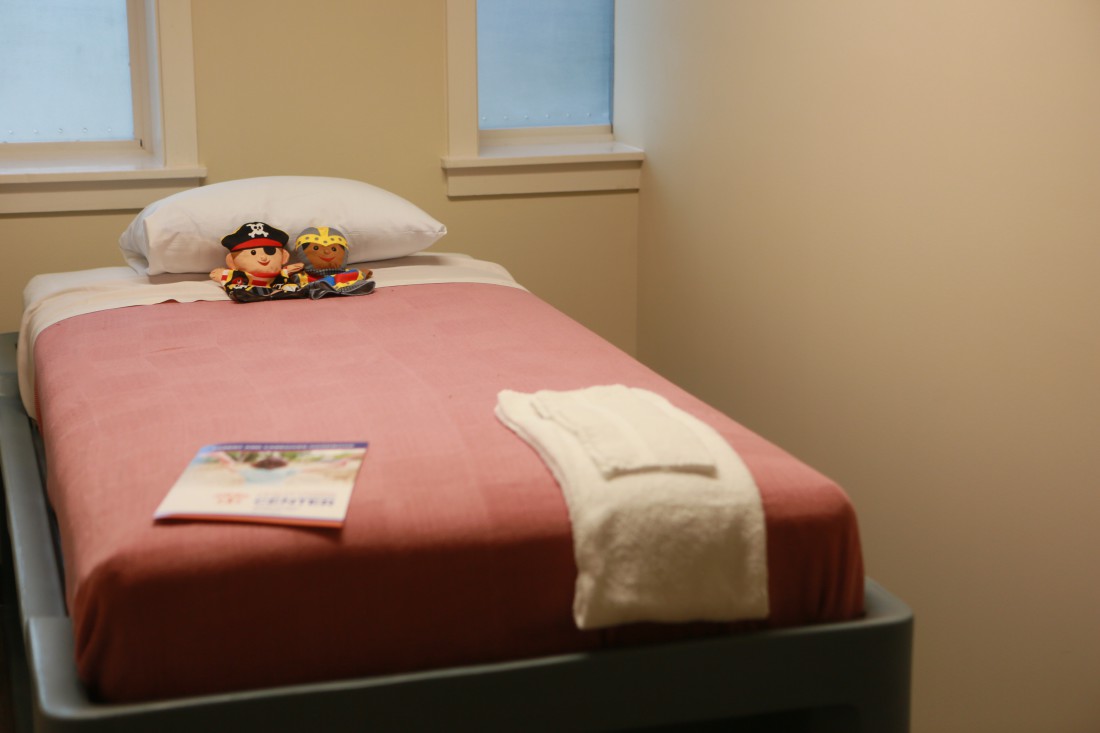Childhood and the teen years can be lonely times, and a new crisis center has emerged as a place of refuge, named for a girl who understood struggle from the inside out. Caiyalynn Burrell loved to encourage other people to stay healthy and strong. “Wrists are for bracelets, not for cutting,” she wrote on her Facebook page, quoting singer Kellin Quinn.
In 2014, 12-year-old Caiyalynn died in what her family believes was an accidental overdose intended as a cry for help in response to bullying at school and on social media.

When Pam Coppedge attended the 12-year-old’s funeral, sadness welled in her heart. She, too, knew the struggles faced by many children, teens and their families. She left the funeral determined that Caiyalynn’s death would not be in vain. Since then, hundreds of people from 23 counties have worked together to create the Caiyalynn Burrell Child Crisis Center. Coppedge, once a worried parent herself, has emerged to become the director of the new center. She got involved in this work because she desperately needed some answers.
“My son struggled in his preteen years,” Coppedge says. “The difficulty we had to try to find resources for him was unbelievable. I did not know how to deal with these issues. He’s doing great now but he didn’t find the resources he needed until he became an adult.”
Anyone can call the center at any time of day or night, and a professional will be there to listen and help find answers. The number is 877-277-8873, and it rings to someone who cares. Many staff members at the newly formed crisis center have first-person, lived experience with struggle, as well as professional expertise. Children, teens and family members can drop into the center to talk anytime.
Catalyst for change
“Crisis is an opportunity for change, and a catalyst for change,” says Carson Ojamaa, interim state director for Family Preservation Services of North Carolina, which will operate the facility. “We know that the experience of trauma changes the wiring and firing of the brain. We can help rewire, so children can grow. The challenge is to capitalize on that opportunity to change.”
Before the Caiyalynn Burrell Child Crisis Center opened, planners gathered from Vaya Health, Buncombe County, the N.C. Department of Health and Human Services, Family Preservation Services of North Carolina, Mission Hospital and more. Over three years, they assessed the needs and how to meet those needs. They conducted community conversations in a 23-county area. The groups shared the goal of creating not only a temporary respite in times of trouble, but also a place to initiate positive transformation.
“It’s important to have a window into kids’ lives,” Coppedge says. “We offer short-term stabilization to route them in a new direction.”
At the center, families find help for making progress away from crisis. The center is one of only two child crisis centers in the state and the first one in Western North Carolina. The 16-bed facility operates from 277 Biltmore Ave. After admittance, children and teens receive thorough assessments.
“Every child gets a complete head-to-toe nursing assessment of all bodily systems and a complete psychiatric assessment,” Coppedge says. “Crisis can be caused by many factors.”
A setting that soothes
Sometimes the assessments will be enough, and the child or teen will be referred immediately to outpatient resources in home communities. Other times, some inpatient care will come first, generally lasting five to seven days. This care involves a steady stream of support that includes yoga, outdoor recreation, music and art in a pleasant, relaxed environment.
“It doesn’t have an institutional feel,” Ojamaa says. “It’s a soothing, calming place, with an abundance of natural light — a setting designed for trauma-informed care. For some children and adolescents, it will be just the right environment.”
Groups will discuss medication management, feelings, future goals and how to avoid risky behavior. The schedule begins at 7 a.m. and continues through the evening, packing as much information and care as possible into each child’s stay.
“Crisis can be scary, overwhelming and out of control,” Ojamaa says. “We offer predictability and consistency.”
The center will have at least one professional on duty for every three people in residence, plus a registered nurse on-site at all times. The staff includes certified peer support specialists who know how it feels to reach out for help.
“Effective person-centered treatment plans and crisis plans will be put in place for any teen or child who stays at the center, and staff will follow up with the families at intervals of 30, 60 and 90 days, to make sure that plan stays on track and to continue offering support.
“We have a dedicated team of case managers to follow up,” Ojamaa says. “We want to make sure that when a child leaves the facility, staff helps with that transition, to make re-entry into daily life as seamless as possible. The more resources we can offer at discharge, the less likely it is that a child will have to come back again.”
Cost of care
Comprehensive psychiatric care can become expensive, but the crisis center received a $1 million grant from the N.C. Department of Health and Human Services to renovate the facility and get going. The center accepts insurance and Medicaid, plus no child or teen will be turned away for inability to pay.
“We don’t want children to be afraid to come to someone for help,” Coppedge says. “We’re providing this center as a place for hope and healing.”
Coppedge has been tracking data since March 2016 on the number of children who present in a state of crisis in Buncombe County. The numbers keep rising, up to 204 children in a month. One in every five teenagers struggles with mental health crisis, so the potential to do good looms large. At full capacity, the center can help up to 75 children in a month. Since the need exceeds capacity, the center hopes to become a model for more places of healing.
“Success will be when all the beds are full, and we are helping as many children as we can,” Coppedge says. “When we have turned even one child to a different direction, we will have success.”
The center works to ensure that children’s emotional and mental health needs can get attention, so an option besides the emergency room exists for children and teens in crisis. Early intervention can prevent a crisis from developing into entrenched, long-term behavior and can be an option in place of involvement with the juvenile justice system. Resources will be available for parents, legal guardians and family members as well as for the children and teens.
“As a parent, I did not know how to handle the situations and had no one to help me deal with the issues facing my child,” Coppedge recalls. “We don’t want to see any parent go through what I had to go through.”
Cry for help
Not everyone knows how to read the signs of internal struggles, and sometimes children work hard to hide that they need help, particularly in situations that involve abuse or bullying, Coppedge says. Caiyalynn, like many others, hid her pain when she could, trying to conform while staying true to her own ideals. “I tried so hard to be what you wanted me to be,” she wrote on her Facebook page.
At times, the most creative, sensitive, kindhearted people endure inner struggles that no one else can guess, and they don’t know how to convey those experiences. They don’t want to trouble anyone. Other times, they explode in rage, estranging friends and family when they most need support.
“Sometimes, we think what’s happening might be part of adolescence and hormonal surges,” Coppedge says. “It’s an outcry when a child or teen talks about wanting to die, feeling hopeless, feeling like a burden to others, self-harm or wanting to kill themselves. Sometimes, their grades decline, and they seem tired all the time. Other times, they show mania, anxiety and irritability, quick to anger with extreme mood swings. Kids react the best way they know how to react in difficult situations.”
The center currently makes referrals for anyone needing involuntary commitment or severe medical intervention. The staff does not use any restraints, seclusion or forced medications. Instead, caregivers focus on de-escalation, stabilization and resources. Caiyalynn Burrell’s family says she would have been happy to know that she’s become a symbol of hope for others. Her middle name was Hope.
“We all knew that Caiyalynn would do amazing things in life, and she did,” her family wrote in a statement. “Now she also gets to do them in the afterlife as well.”



Before you comment
The comments section is here to provide a platform for civil dialogue on the issues we face together as a local community. Xpress is committed to offering this platform for all voices, but when the tone of the discussion gets nasty or strays off topic, we believe many people choose not to participate. Xpress editors are determined to moderate comments to ensure a constructive interchange is maintained. All comments judged not to be in keeping with the spirit of civil discourse will be removed and repeat violators will be banned. See here for our terms of service. Thank you for being part of this effort to promote respectful discussion.